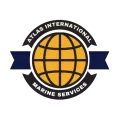
The International Maritime Organization (IMO) has recently launched a significant initiative aimed at promoting sustainable ship recycling practices in Pakistan.
This blog post delves into the details of this project, its objectives, and the broader implications for the maritime industry in Pakistan.
Overview of the SENSREC-DW Project
The Safe and Environmentally Sound Recycling of Ships and Decent Work (SENSREC-DW) Project is a collaborative effort between the IMO and the International Labour Organization (ILO).
The project aims to enhance safety and environmental responsibility within the ship recycling industry in Pakistan.
The first workshop under this project was held in Karachi, marking the beginning of a series of initiatives designed to align Pakistan’s ship recycling practices with international standards.
Objectives and Activities
During the initial workshop, participants outlined specific objectives and activities for the SENSREC-DW Project.
These include capacity building and training programs tailored to local contexts, ensuring compliance with international standards such as the Hong Kong Convention, the Basel Convention, and ILO treaties.
The outcomes of these discussions will guide the implementation of initiatives aimed at promoting decent work and sustainable practices in ship recycling facilities across Pakistan.
Compliance with International Standards
A key focus of the SENSREC-DW Project is to ensure that Pakistan’s ship recycling industry complies with international standards.
The Hong Kong International Convention for the Safe and Environmentally Sound Recycling of Ships, adopted in 2009, is central to these efforts.

This convention, which will enter into force in June 2025, mandates that ships sent for recycling carry an inventory of hazardous materials and that approved facilities provide a recycling plan specific to each vessel.
Pakistan has recently signed up to this convention, demonstrating its commitment to sustainable ship recycling.
Government and Stakeholder Involvement
The project has garnered significant support from both the Pakistani government and international stakeholders.
The Ministry of Maritime Affairs in Pakistan hosted an IMO workshop under the Integrated Technical Cooperation Program, focusing on the implementation of the Hong Kong Convention.
This seminar provided a platform for stakeholders to engage in meaningful dialogue, shape industry standards, and set a course for a more sustainable maritime future.
Broader Implications for Pakistan’s Maritime Industry
The launch of the SENSREC-DW Project is part of a broader effort to modernize Pakistan’s maritime industry.
The Secretary General of the IMO, Arsenio Antonio Dominguez Velasco, has extended full cooperation to Pakistan to harness its maritime trade and ship recycling potential.
The Deputy Prime Minister and Foreign Minister, Muhammad Ishaq Dar, reiterated Pakistan’s commitment to environmental sustainability and highlighted initiatives for modernizing the fisheries and shipbreaking sectors with advanced technology and practices.
In Summary,
The IMO’s launch of the SENSREC-DW Project in Karachi marks a significant step towards sustainable ship recycling in Pakistan.
By aligning with international standards and fostering collaboration between government and industry stakeholders, Pakistan is poised to become a leader in environmentally responsible ship recycling.
This initiative not only promises to enhance the safety and environmental performance of the ship recycling industry but also contributes to the broader goals of sustainable development and environmental protection.
Found this article interesting, and useful? Please feel free to interact, recommend and share.
If you have any questions about this topic or would like to discuss your own business needs, please contact us today!
